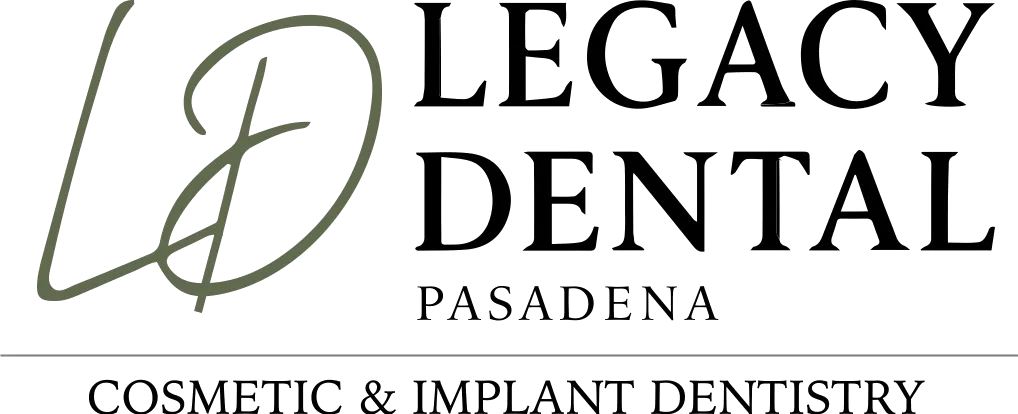Pre & Post-Op Dental Surgery Instructions
Helpful guidelines to ensure a smooth procedure and recovery.

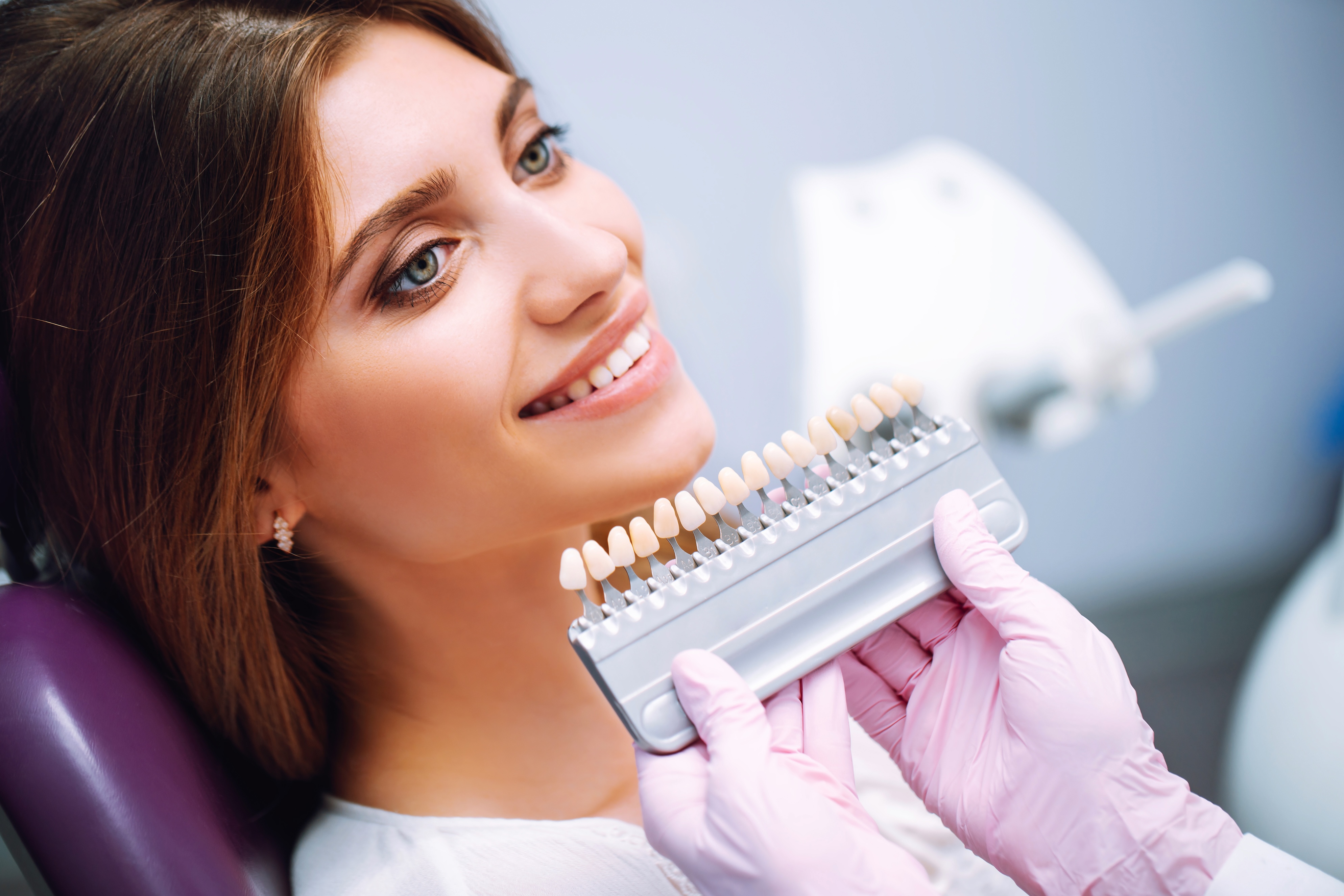
Caring for Your Smile After Ceramic Veneers in Pasadena
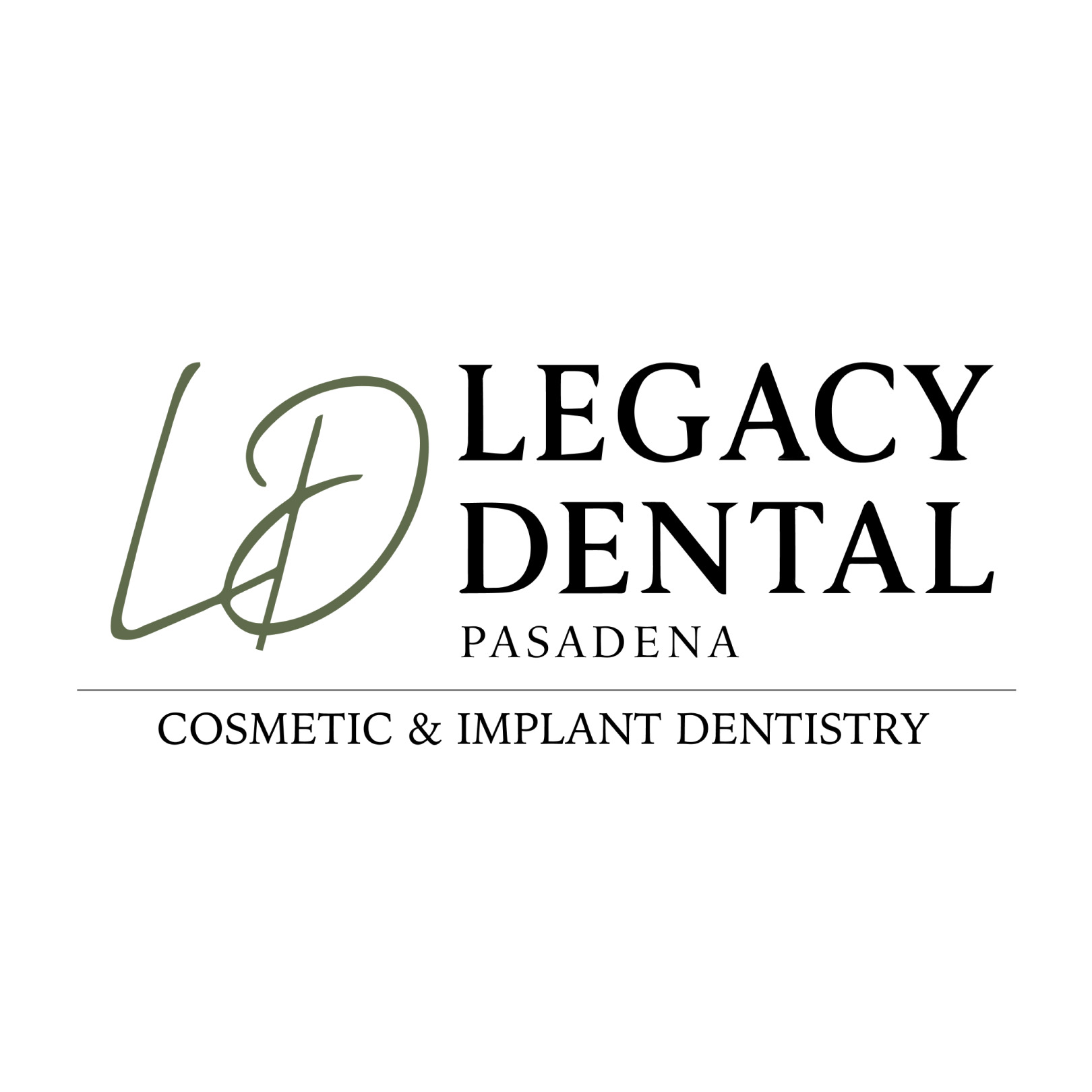
Your New Smile Deserves the Right Care
You just completed your smile transformation with ceramic veneers, and your reflection has never looked better. To make sure your new smile stays beautiful for years, it is important to follow proper post-op care.
At Legacy Dental Pasadena, our goal is not only to create stunning smiles but also to help you protect your investment. Here is what Pasadena patients should know about caring for their veneers in the hours, days, and years after treatment.
Right After Your Appointment
When your veneers are first placed, your teeth and gums may feel slightly sensitive. This is normal and temporary.
Here is what you should do during the first 48 hours:
- Avoid hard or sticky foods. Give your veneers time to fully bond.
- Skip extremely hot or cold drinks if your teeth feel sensitive.
- Brush gently using a soft-bristled toothbrush and non-abrasive toothpaste.
- Do not chew ice, fingernails, or pens. Your veneers are strong but not indestructible.
- Avoid staining foods such as red wine, soy sauce, or coffee for the first 24 hours.
If your bite feels uneven or uncomfortable, call our office so we can make quick adjustments.
Mild Sensitivity Is Normal
It is common for Pasadena patients to experience light sensitivity after veneer placement. This happens because your teeth and gums are adjusting to their new shape and bite.
You may notice:
- Mild soreness when chewing
- Slight gum tenderness
- Temporary hot and cold sensitivity
Tip: Rinse with warm salt water twice a day to soothe your gums. Sensitivity should fade within a few days.
If you experience sharp pain or pressure, contact Legacy Dental Pasadena for a quick evaluation.
Brushing and Flossing After Veneers
Good oral hygiene is key to keeping your veneers and natural teeth healthy.
Follow these steps:
- Brush twice daily using gentle pressure. Avoid whitening toothpaste, which can be abrasive.
- Floss daily to remove plaque and prevent gum inflammation. Slide the floss carefully between veneers.
- Use an alcohol-free mouthwash to reduce bacteria without damaging bonding material.
- Electric toothbrushes are safe to use, but choose one with soft bristles and light pressure.
Your veneers themselves cannot decay, but the natural teeth underneath still can. Keeping your gums clean and healthy ensures your veneers stay secure and bright.
Eating and Drinking with Veneers
You can enjoy almost all your favorite foods with veneers once initial sensitivity fades. However, a few simple habits help extend their life.
Best practices:
- Cut tough foods like apples or steak into smaller bites.
- Limit dark sauces and drinks that stain.
- Avoid biting directly into hard items like bones, nuts, or hard candy.
- Drink dark beverages (coffee, tea, wine) through a straw when possible.
- Stay hydrated to keep your mouth naturally clean.
The stronger your enamel and gums, the longer your veneers will maintain their beauty.
Protecting Your Veneers from Damage
Ceramic veneers are strong, but they can still chip under pressure. Here is how Pasadena patients can protect them long-term:
- Wear a night guard if you clench or grind your teeth. This prevents unnecessary stress on veneers while you sleep.
- Use a sports mouthguard if you play contact sports.
- Do not use your teeth as tools to open packages or bite nails.
- Schedule routine cleanings every six months at Legacy Dental Pasadena to keep your veneers polished and plaque-free.
Your veneers can last 10 to 15 years or longer with proper care, and these habits ensure they stay beautiful and functional.
Common Questions from Pasadena Patients
How soon can I eat normally?
After 24 hours, you can return to your usual diet, but take care with crunchy or sticky foods for the first few days.
Will my veneers feel strange at first?
It may take a few days for your bite and speech to adjust. Most patients feel completely normal within a week.
Do veneers require special cleaning?
No. You can brush and floss as you normally would, but use gentle, non-abrasive products.
Can my veneers stain?
Ceramic veneers are highly resistant to stains, but surface buildup can dull their shine. Regular cleanings keep them bright.
When to Call Your Dentist
Contact Legacy Dental Pasadena right away if you notice:
- A veneer feels loose or rough
- Sharp edges develop on a veneer
- Persistent discomfort when biting
- Gum swelling or bleeding around veneers
Minor issues are easy to fix if addressed early. Delaying care can allow bacteria to seep under the veneer and affect your natural tooth.
Professional Maintenance at Legacy Dental Pasadena
Your veneers will look their best with professional polishing and checkups. During your routine visits, our team will:
- Examine your veneers for stability and edge wear
- Gently polish and clean the ceramic surface
- Monitor gum health around each veneer
- Refresh your smile to keep it photo-ready year-round
Regular professional care also allows us to catch small issues before they become major repairs.
How to Keep Your Veneers Looking Their Best
To maintain a fresh, luminous smile for years:
- Brush and floss daily.
- Keep up with routine dental visits.
- Avoid tobacco and excessive coffee or tea.
- Wear protective guards when needed.
- Maintain overall oral and gum health.
With the right habits, your veneers will continue to look natural, bright, and smooth for over a decade.
Your Smile, Designed to Last
Getting ceramic veneers is an exciting investment in your confidence and appearance. With just a little care, you can keep your smile looking as beautiful as the day it was placed.
At Legacy Dental Pasadena, we are committed to helping you maintain your results for life. Whether it has been a few days or a few years since your treatment, our team is here to guide you every step of the way.
Call today or schedule your next cleaning online to keep your veneers shining and your smile healthy with Legacy Dental Pasadena — your trusted cosmetic dentist in Pasadena.
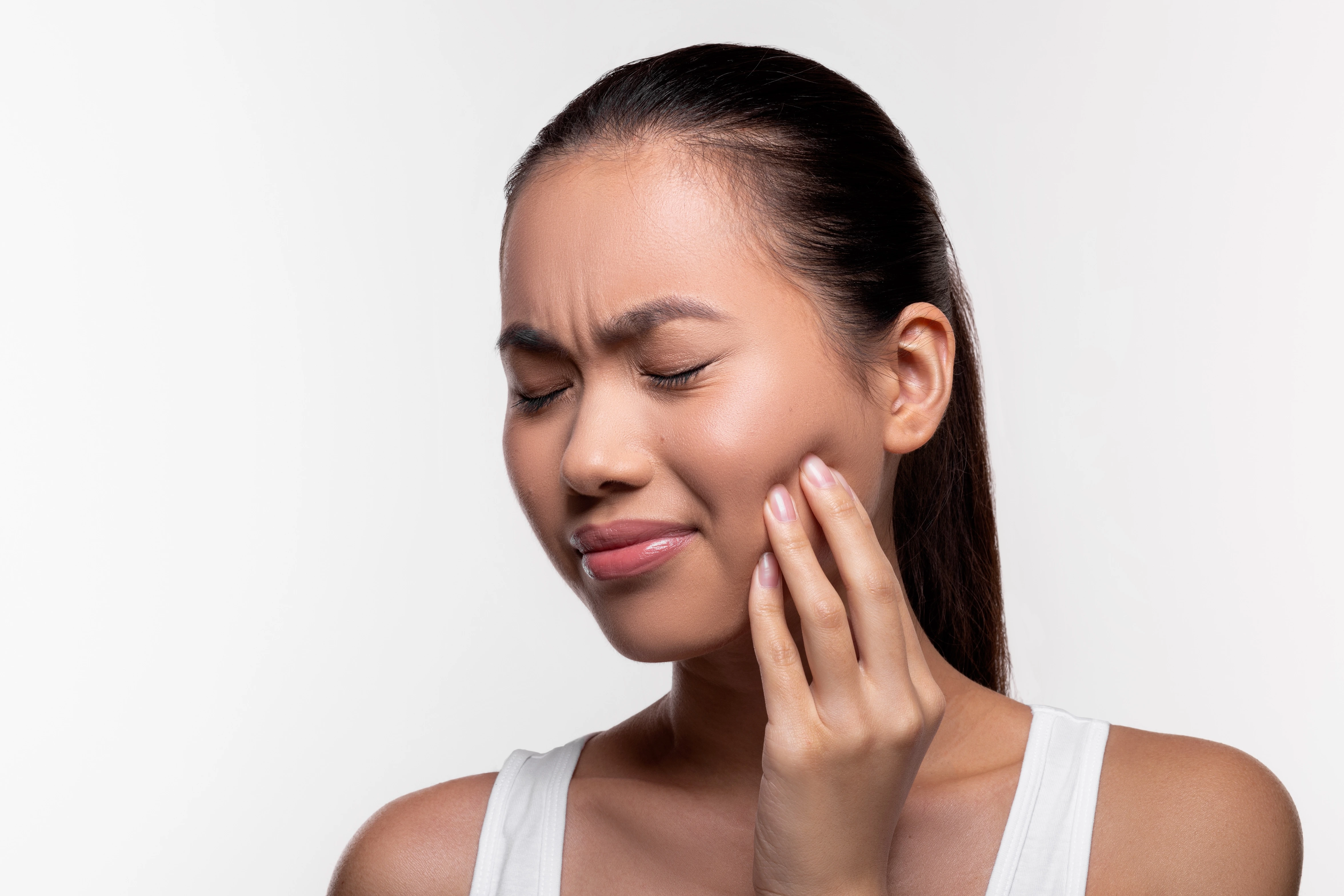
Wisdom Tooth Surgery Post-Op Instructions: Your Complete Guide to Healing Comfortably

Recovering from Wisdom Tooth Surgery
Having your wisdom teeth removed is a common procedure that helps prevent overcrowding, pain, and infection. While the surgery is routine, the recovery period is just as important for long-term comfort and healing. At Legacy Dental Pasadena, we provide every patient with detailed post-operative care instructions to make sure healing is smooth and stress-free.
Here’s what you can expect after your wisdom tooth surgery and how to take the best care of yourself during recovery.
Common Post-Operative Conditions
It is completely normal to experience some mild symptoms after wisdom tooth removal as your body heals. These side effects are temporary and usually improve within a few days.
You may notice:
- Limited ability to open your mouth due to muscle stiffness or swelling.
- Slight bruising or discoloration of the skin near your jaw or cheeks.
- Numbness around the lips, chin, or corners of your mouth.
- A mild sore throat or difficulty swallowing.
- Aching or soreness in nearby teeth.
- Dryness or chapped corners of the mouth, which can be treated with Vaseline or Neosporin.
- Slight temperature elevation (up to 1.5 degrees above normal).
- Nausea, which can occur from pain medication or swallowing blood.
- Small fragments of bone that may loosen and work their way through the gum as healing progresses.
All of these conditions are normal signs that your body is adjusting and healing. If any symptoms worsen or last longer than expected, contact Legacy Dental Pasadena for follow-up care.
The First 24 Hours After Surgery
The first day after your procedure is critical for proper healing. During this period, the body forms blood clots at the extraction sites, which protect the bone and promote recovery.
To protect the healing area and minimize discomfort, follow these steps carefully.
Managing Bleeding
Light bleeding or oozing is normal for up to 24 hours. Here’s how to control it:
- Bite gently on a piece of gauze for 30 to 40 minutes.
- Replace the gauze as needed until bleeding slows.
- Do not eat, drink, or sleep with gauze in your mouth.
- If bleeding continues, use a damp tea bag to encourage clotting.
When resting, keep your head elevated with two or three pillows. Lying flat can increase bleeding.
Hygiene and Mouth Care
Avoid rinsing or brushing your teeth on the day of surgery. Starting the following morning, you may begin gentle brushing and flossing, but avoid the surgical areas. Rinse your mouth with warm salt water (1 teaspoon of salt in 8 ounces of water) three to four times daily for the first week.
Do not use mouthwash, as it can irritate the area and slow healing.
Food and Drinks
You may drink non-alcoholic beverages after surgery. Wait until the numbness wears off before eating to avoid biting your tongue or cheeks.
Stick to soft, cool, or room-temperature foods for the first 24 to 48 hours. Avoid chewing near the extraction site and resume solid foods gradually.
Foods to Avoid
- Spicy or crunchy foods
- Hot foods or drinks
- Popcorn and pretzels
- Alcohol
- Seeds and nuts
Recommended Soft Foods
- Yogurt and applesauce
- Mashed potatoes and pudding
- Soft scrambled eggs
- Oatmeal and cottage cheese
- Smoothies and protein shakes
- Soup that is warm, not hot
- Bananas, tofu, and pureed vegetables
Avoid using straws for at least 24 hours, as suction can dislodge the protective clot and lead to a painful condition called dry socket.
Pain and Swelling Control
Swelling typically peaks around 48 hours after surgery and gradually decreases. Mild discomfort is expected, but it can be easily managed with proper care.
- Apply an ice pack to the outside of your face for 20 minutes on, then 20 minutes off during the first day.
- Take prescribed pain medication or over-the-counter Ibuprofen as directed.
- If nausea occurs, take your medication with food or switch to Extra Strength Tylenol as advised.
- Avoid Aspirin, as it may increase bleeding.
- Refrain from smoking or drinking alcohol while taking narcotic medication.
Everyone heals at a different pace. Following these guidelines will help reduce pain and speed up recovery.
48 Hours After Surgery
After the first two days, you should begin to feel gradual improvement. At this stage, it’s important to continue resting and avoid strenuous activity.
Key guidelines for 48 hours after surgery:
- Rest as much as possible and avoid heavy physical exertion for two to three days.
- Postpone exercise or intense movement for five to seven days.
- Avoid smoking, as it can delay healing and increase the risk of infection.
- After 48 hours, you may apply a moist heat pack to the outside of your face to relax stiff muscles and reduce swelling.
Your comfort should continue to improve each day as the healing process progresses.
Sinus Care Instructions
If your wisdom teeth were in the upper jaw, your dentist may have been working near your sinus cavity. Some patients experience mild sinus congestion or pressure afterward. This is temporary and can be managed with care.
To protect your sinuses and ensure proper healing, follow these important steps:
- Use a mild decongestant or antihistamine if you feel congestion or post-nasal drip.
- Do not blow your nose for two weeks after surgery.
- Do not stifle a sneeze. If you must sneeze, open your mouth and let it out naturally to minimize pressure in your sinuses.
- Take all prescribed medications exactly as directed.
- Call Legacy Dental Pasadena if you have questions or experience unusual pressure.
- A small amount of bloody discharge from the nose within 24 hours can be normal.
By following these sinus precautions, you reduce the chance of complications and allow your body to heal comfortably.
General Healing Tips
- Keep your head elevated when resting to reduce swelling.
- Maintain gentle oral hygiene and saltwater rinses throughout the first week.
- Stay hydrated and avoid caffeinated or carbonated beverages.
- Refrain from smoking or vaping for at least several days.
- Get plenty of rest and allow your body time to recover fully.
Most patients feel noticeably better within three to five days. Complete healing typically occurs within one to two weeks, depending on the complexity of your extraction.
When to Contact Your Dentist
While minor swelling and soreness are normal, you should contact Legacy Dental Pasadena immediately if you experience:
- Severe or increasing pain after the first few days
- Persistent bleeding or pus near the surgical site
- Fever over 101°F
- Numbness that lasts more than 24 hours
- Difficulty swallowing or breathing
Our team is here to ensure your recovery stays on track and that you remain comfortable throughout your healing journey.
Supporting Your Recovery
By following these instructions carefully, you can enjoy a smooth and successful recovery from wisdom tooth surgery. Taking care of your mouth during the first few days will not only reduce discomfort but also protect the surgical site and help prevent complications.
At Legacy Dental Pasadena, our goal is to make your experience positive from start to finish. If you have any concerns or need clarification about your aftercare, do not hesitate to contact our office.
Your comfort, safety, and healthy recovery are always our top priorities.
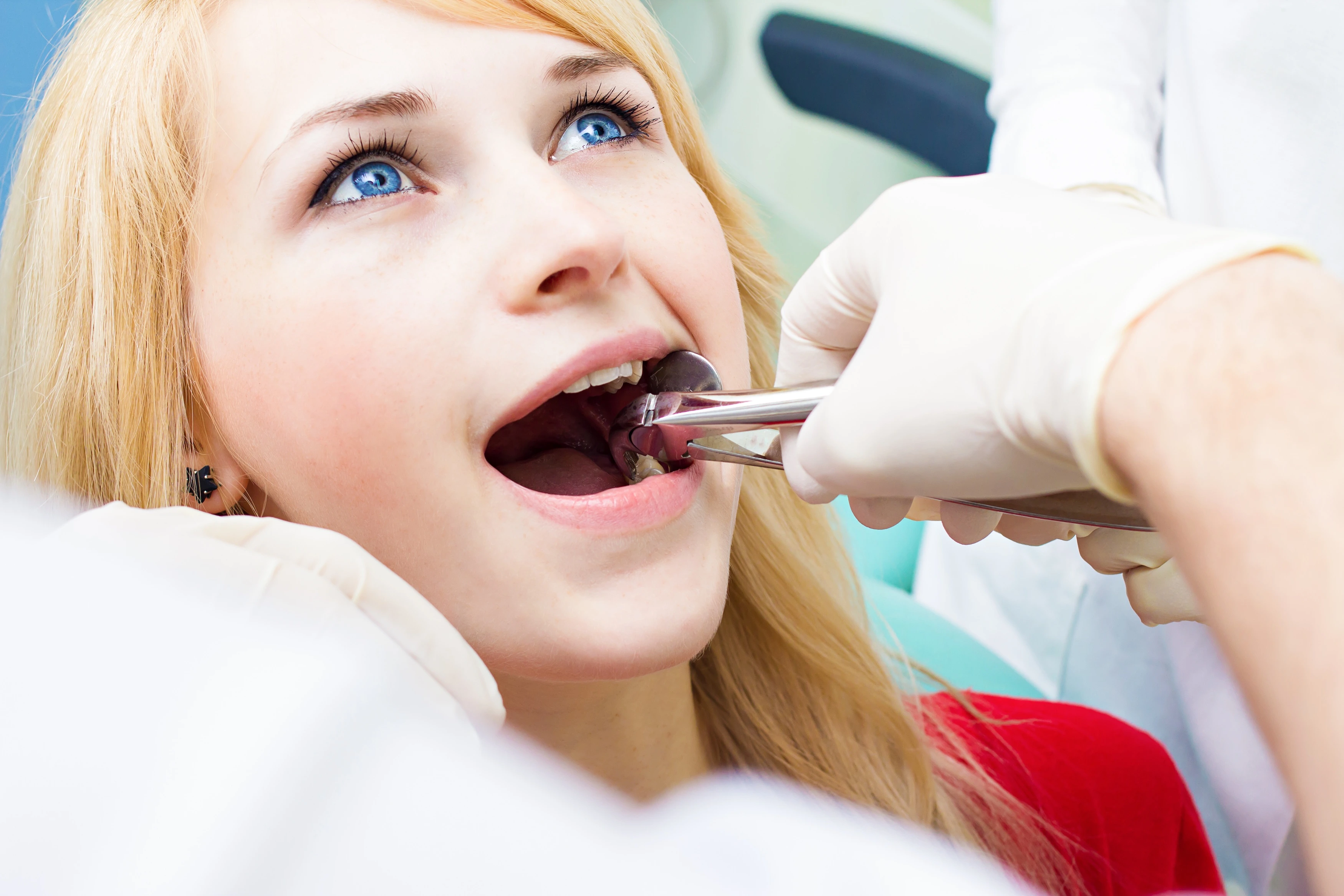
Tooth Extraction Post-Op Instructions: What to Expect and How to Heal Quickly

Caring for Your Smile After Tooth Extraction
Having a tooth extracted can be a necessary step to protect your oral health. Whether you had a wisdom tooth removed or a damaged tooth extracted, proper post-operative care is essential for a smooth recovery.
At Legacy Dental Pasadena, we want every patient to feel confident and informed after surgery. Understanding what to expect and following the right care routine can prevent complications and help your mouth heal properly.
Here is your complete guide to recovery after a tooth extraction.
Common Post-Operative Conditions
After a tooth extraction, it is normal to experience mild discomfort as your body begins to heal. Here are some common post-operative conditions you may notice:
- Difficulty opening your mouth due to muscle tightness or swelling.
- Slight bruising or skin discoloration near the jaw or cheeks.
- Numbness around the corners of your mouth, lips, or chin.
- Mild sore throat or temporary difficulty swallowing.
- A dull ache in neighboring teeth as your mouth adjusts.
- Chapped lips that can be soothed with Vaseline or Neosporin.
- A small increase in body temperature (up to 1.5 degrees above normal) for a few days.
- Nausea caused by medication or swallowed blood, which can be eased by reducing the medication dose.
- Small bone fragments that may loosen or work their way through the gum tissue. These typically resolve on their own.
All of these reactions are normal and temporary. If you notice severe or prolonged pain, swelling, or unusual bleeding, contact Legacy Dental Pasadena right away.
The First 24 Hours After Surgery
The first 24 hours are the most important for successful healing. During this time, your mouth forms a blood clot at the extraction site. This clot protects the bone and tissue underneath, allowing the area to heal.
Do not disturb this clot. Avoid rinsing, spitting, or drinking through a straw, as these actions can dislodge it and cause a painful condition known as dry socket.
Managing Bleeding
It is common to experience light bleeding or oozing for up to 24 hours. To manage it:
- Bite gently on a clean piece of gauze for 30 to 40 minutes.
- Replace the gauze if it becomes saturated and repeat as needed.
- Do not eat, sleep, or drink while gauze is in your mouth.
- If bleeding continues, use a damp tea bag and bite gently. The tannins in tea can help your blood clot faster.
Oral Hygiene
Do not rinse your mouth or brush your teeth on the day of surgery. The following morning, you can begin gently brushing and flossing, but avoid the surgical area. Rinse your mouth three to four times daily with a warm saltwater solution (1 teaspoon of salt in 8 ounces of water) for the first week. This helps keep the area clean and promotes healing.
Activity and Rest
Rest is critical during the first 24 hours. Avoid driving, operating heavy machinery, or consuming alcohol, especially if you have taken narcotic pain medication.
Pain and Swelling Management
Some discomfort and swelling are expected after tooth extraction. Swelling usually peaks at around 48 hours and gradually subsides after that.
To minimize pain and inflammation:
- Apply an ice pack to the face on the side of the extraction for 20 minutes on, then 20 minutes off.
- Take the prescribed medication as directed by your dentist.
- Over-the-counter pain relievers like Ibuprofen or Tylenol can be used as alternatives if approved by your provider.
Avoid taking Aspirin, as it can increase bleeding. Never combine Tylenol with prescription narcotic medication unless directed.
Eating After a Tooth Extraction
You can drink non-alcoholic beverages right after surgery, but eating should wait until the numbness fully wears off. Start with soft, cool, or room-temperature foods during the first 24 to 48 hours.
Foods to Avoid
- Spicy foods
- Crunchy snacks
- Hot foods or drinks
- Popcorn
- Pretzels
- Alcohol
- Seeds or nuts
Recommended Soft Foods
- Applesauce and pudding
- Mashed potatoes and oatmeal
- Yogurt, cottage cheese, and smoothies
- Jell-O and soft scrambled eggs
- Protein shakes, tofu, and soups (lukewarm only)
- Ice cream or milkshakes (without a straw)
You may gradually return to your normal diet once chewing feels comfortable and the surgical site has started to close.
48 Hours After Surgery
After the first two days, most patients begin to notice improvement in swelling and soreness. At this stage, gentle heat can help soothe stiff muscles and enhance comfort.
You may apply a warm compress or moist towel to the outside of your face for 15 to 20 minutes at a time.
Continue to rest as much as possible and avoid strenuous physical activity for the first three days. Heavy exercise should be postponed for five to seven days.
Smoking delays healing and increases the risk of infection. Try to avoid smoking for several days after your procedure for the best outcome.
Sinus Care Instructions
If your tooth extraction involved upper teeth, especially near the sinus cavity, it is common to experience mild sinus pressure or nasal congestion afterward. To protect your healing sinus and prevent complications, follow these important steps:
- Use a mild decongestant or antihistamine if you experience congestion or post-nasal drip.
- Do not blow your nose for two weeks after surgery.
- Do not stifle a sneeze. If you must sneeze, do so with your mouth open to reduce sinus pressure.
- Take all prescribed medications as directed.
- Contact Legacy Dental Pasadena if you experience unusual pressure, swelling, or prolonged discomfort.
- A small amount of bloody discharge from the nose within the first 24 hours is normal.
Following these sinus care instructions will help ensure a smooth and complication-free recovery.
What to Expect as You Heal
Mild discomfort, swelling, and tenderness are normal for the first few days. Most patients begin to feel significantly better within 72 hours, and the majority of healing occurs within one to two weeks.
Continue brushing and flossing the other areas of your mouth as usual, and maintain a healthy diet to support your immune system.
If you notice persistent bleeding, severe pain, fever, or foul taste, contact Legacy Dental Pasadena immediately. Our team will assess your healing and make sure you are recovering properly.
The Legacy Dental Pasadena Commitment
Your comfort and safety are our top priorities. Our experienced team is here to guide you through every stage of your recovery, from surgery to your follow-up appointment.
We encourage you to reach out with any questions or concerns during your healing process. Following these post-op instructions will help prevent complications, reduce discomfort, and ensure a faster recovery.
With proper care, your extraction site will heal beautifully, setting the foundation for a healthier, stronger smile.
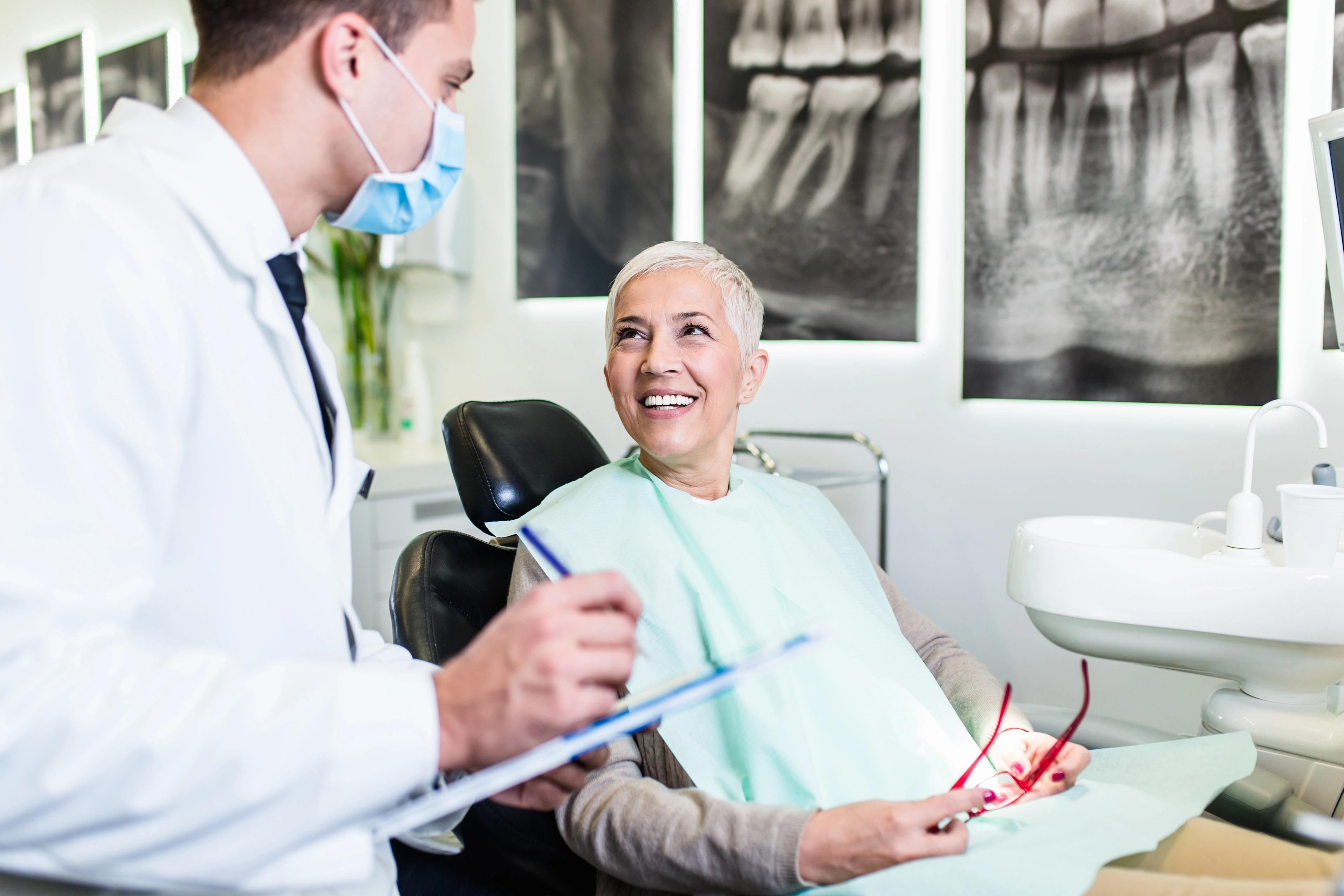
Dental Implant Surgery Post-Op Instructions: What to Expect and How to Heal Properly

Healing After Dental Implant Surgery
Getting dental implants is a life-changing step toward restoring your smile. To make sure your recovery goes smoothly, it is important to follow proper post-operative care. At Legacy Dental Pasadena, our team provides personalized guidance to help every patient heal comfortably and achieve long-lasting results.
Here is a complete overview of what to expect after your implant surgery and how to care for your mouth during the healing period.
Common Post-Operative Conditions
It is normal to experience some side effects after implant surgery as your mouth begins to heal. These reactions are temporary and usually improve within a few days.
You may notice:
- Limited mouth opening due to muscle tightness or swelling.
- Mild bruising or discoloration of the skin.
- Numbness around the corners of your mouth, lips, or chin.
- A sore throat or mild difficulty swallowing.
- Slight aching in nearby teeth.
- Dryness or chapping at the corners of your lips, which can be eased with Vaseline or Neosporin.
- A small rise in body temperature (up to 1.5 degrees above normal).
- Nausea caused by prescription medication or swallowing blood. Reducing the medication dosage or taking half a tablet may help.
- Occasionally, tiny bone fragments may work their way through the gum. These often resolve naturally, but you can return for evaluation if needed.
These are all normal responses as your body recovers. Staying hydrated, eating soft foods, and resting can help your body heal faster.
Managing Bleeding
Light bleeding or oozing is common for up to 48 hours following surgery. To manage this:
- Avoid excessive rinsing or spitting, as it can dislodge the healing clot.
- Place a piece of gauze directly over the surgical area and bite down firmly for about 15 minutes.
- Replace the gauze if needed until the bleeding stops.
- If bleeding persists, you can use a tea bag soaked in warm water. The tannins in tea help promote clotting.
If bleeding continues beyond this point or becomes heavy, contact Legacy Dental Pasadena right away for additional care.
Oral Hygiene After Surgery
You can begin brushing your teeth gently the morning after your procedure. Use a soft toothbrush and avoid brushing directly over the surgical site until the crown or final restoration is placed.
It is important to keep the surgical area clean without disturbing the healing process. Rinse your mouth three to four times a day using a warm saltwater solution (1 teaspoon of salt in an 8-ounce glass of water). This helps reduce bacteria and soothes the gums.
Flossing should be avoided around the implant site for the first two weeks after surgery. As healing progresses, your dentist will guide you on when to resume normal brushing and flossing techniques.
Caring for Removable Appliances
If you have a removable appliance such as a flipper, denture, or partial plate, keep it in your mouth continuously for the first 72 hours after surgery. This helps control swelling and allows your tissues to adapt to the new shape of your mouth.
Removing your appliance for even a short time during the first few days can lead to swelling that makes it difficult to refit. You may remove it briefly for cleaning under running water, but it should be worn as much as possible during the first three days.
Managing Discomfort and Swelling
Some swelling is expected after dental implant surgery and typically peaks around 48 hours. To reduce swelling and discomfort:
- Apply ice packs to the sides of your face for 20 minutes on and 20 minutes off during the first two days.
- Take 600 mg of ibuprofen (3 Advil or Motrin tablets) every six hours as needed for pain and inflammation.
- If you are allergic to ibuprofen or taking other medications, follow your physician’s instructions instead.
You may also take your prescribed pain medication as directed. If nausea occurs, try taking medication with food or switch to Extra Strength Tylenol every six hours. Avoid combining Tylenol with narcotic pain medications unless directed by your dentist.
Aspirin is not recommended after surgery, as it can increase bleeding.
Diet and Exercise
You can return to eating soft foods as soon as the numbness wears off, as long as you avoid chewing near the surgical site. Choose foods that are cool or lukewarm and easy to swallow.
For the first two weeks, do not chew directly over the implant area. If you have a temporary crown, avoid chewing on it until your final restoration is placed by your dentist. This typically takes about four to six months.
To minimize swelling and inflammation, avoid strenuous activity for the first three to five days following surgery. Rest as much as possible and keep your head elevated when lying down.
Foods to Avoid
- Crunchy or hard foods
- Spicy dishes
- Hot foods or beverages
- Popcorn
- Pretzels
- Alcohol
- Seeds and nuts
Recommended Soft Foods
- Yogurt and cottage cheese
- Mashed potatoes and pureed vegetables
- Applesauce, pudding, and oatmeal
- Soft scrambled eggs
- Protein shakes, smoothies, and juices
- Bananas and tofu
- Soup that is warm, not hot
Staying hydrated and eating nutritious soft foods will help speed up your recovery and support bone healing.
Important Restrictions
Avoid spitting, using a straw, or smoking for the first 24 hours after surgery. These actions create suction that can disturb the healing area and delay recovery.
If you were prescribed antibiotics or antimicrobial rinses, take them as directed to prevent infection.
Try to rest as much as possible during the first few days. Gentle movement is fine, but allow your body time to heal before returning to your regular exercise routine.
Smoking and Implant Success
Smoking will significantly reduce the success rate of implants. It can compromise the appearance of your final crown and accelerate gum recession, which may expose the implant or cause aesthetic concerns. Smoking also increases post-operative discomfort and slows healing.
For the best outcome, complete abstinence is strongly recommended for at least two weeks after surgery, and ideally, patients should quit entirely to protect their oral and overall health.
Sinus Care Instructions
Some patients may experience sinus congestion or pressure following implant surgery, particularly when implants are placed near the upper jaw. To prevent complications and ensure proper healing between the sinus and the mouth, follow these instructions carefully:
- Use a mild decongestant or antihistamine if you feel congestion or post-nasal drip.
- Do not blow your nose for two weeks after surgery.
- Do not stifle a sneeze. If you must sneeze, do so through your mouth to minimize air pressure in your sinuses.
- Take prescribed medications exactly as directed.
- Contact Legacy Dental Pasadena if you experience any unusual discomfort or have questions about your recovery.
- A mild bloody nose for the first 24 hours can be normal and is not typically a cause for concern.
Following these guidelines will help protect the surgical site and reduce the risk of complications related to the sinus area.
When to Contact Your Dentist
While mild swelling, bleeding, and tenderness are normal, call our office immediately if you experience:
- Severe or persistent pain
- Continuous bleeding
- Fever above 101°F
- Signs of infection such as swelling or discharge
- Movement or loosening of the implant
Our caring team at Legacy Dental Pasadena is here to support your recovery and ensure every step goes smoothly.
We’re Here to Help
Our friendly team is ready to answer your questions and make your visit as smooth as possible.
